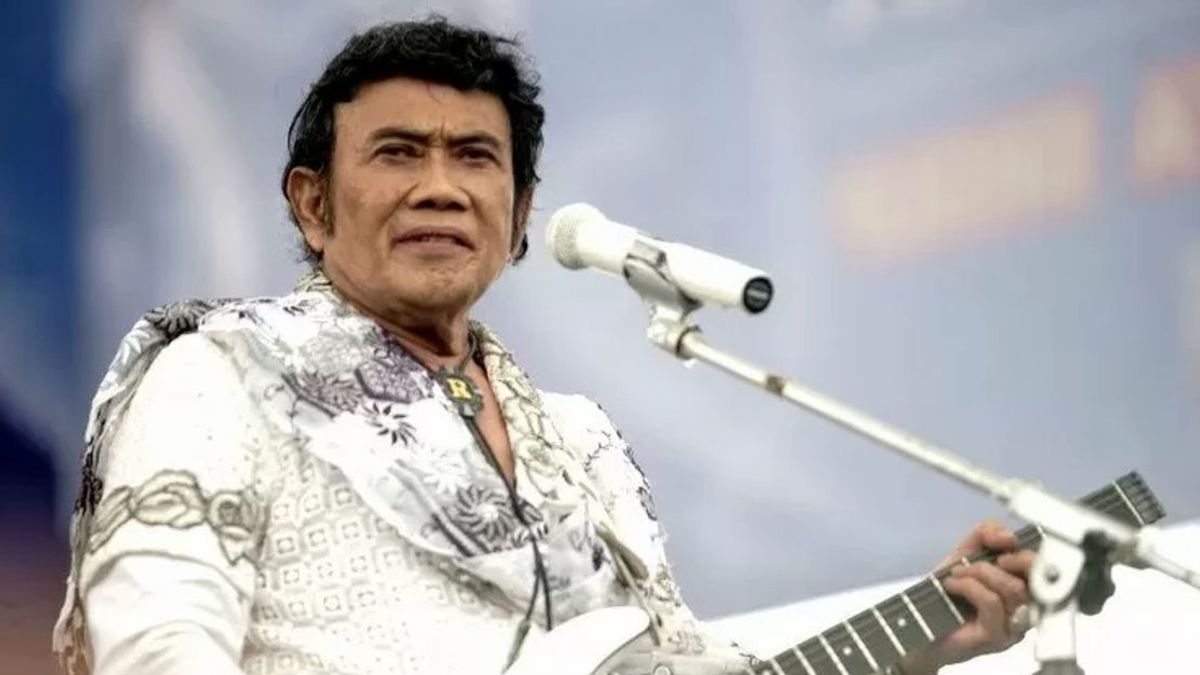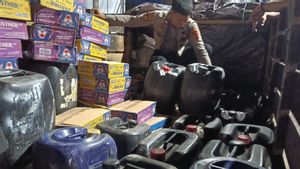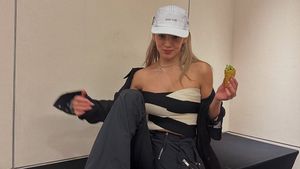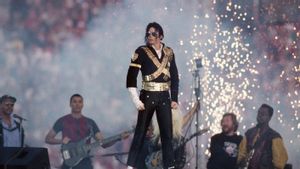JAKARTA - Celebrities are often asked to be the campaign interpreter (Jurkam) of the New Order era (Orba). They are moved as a vote getter (voting). The presence of King Dangdut, Rhoma Irama as a Justice of the United Development Party (PPP), for example.
Its influence for PPP is so significant. All eyes looked at PPP. Golkar was jealous. The ruling party wanted to "trick" Rhoma Irama as Jurkam. Instead of accepting, Rhoma Irama refused to join in 1977. Therefore, Rhoma Irama's concerts and works were banned by the New Order.
There are no two colors of elections in Indonesia. The democratic party is a big celebration for all Indonesian people. Political parties are competing to get votes. While the people try to capture the right person representing his interests.
It may be that the popularity of the party and the figure being promoted are considered a major attraction. However, both of them are not enough. Each party needs a lot of jurkam to be qualified. Jurkam who has high popularity.
This effort was fully answered in the holding of the 1977 General Election. Every political party almost certainly uses the services of celebrities as Jurkam. His job is to go directly to the regions to represent the party that is promoted.
This effort often brings significant results. The presence of Rhoma Irama as a Jurkam from PPP, for example. Rhoma Irama's figure that popularized dangdut music became PPP's voice. Therefore, each PPP campaign is never empty of spectators.
During the PPP period, it was not uncommon to be attended by those from outside the region. All of this was due to the great influence of the King of Dangdut. Because of the influence of Rhoma Irama, at that time there was an assumption that even if the election was carried out honestly and fairly, then PPP would be far behind the ruling party at that time, the Golkar Group (Golkar). Not in second place under Golkar in the 1977 elections.
In the days before the campaign, it was easy to find singer artists at home or recording studios, lately it has been very difficult. Don't look for top artists like Elvi Sukaesih or Rhoma Irama. Many lower class artists who are subscribed to Golkar are also on a safari to the regions".
Rhoma Irama with the Sonnet Group who firmly stated that he joined under the banners of PPP, had flown to Banjarmasin and enlivened a campaign in the city that used to be the base of the party bearing the Kaaba symbol. On the other hand, singer Elvi Sukaesih (friend of the Rhoma Irama duet) was also brought to Banjarmasin to shake her hips in the campaign event organized by Golkar, written in the April 3, 1982 Daily Report, as quoted in the 1982 (1983) general election book.
The influence of Rhoma Irama cannot be underestimated. The dangdut music he brought was loved by all Indonesian people, especially the common people. Moreover, dangdut at that time became the prima donna. Every time there is a name Rhoma Irama, all Indonesian people will immediately follow.
The existence of Rhoma Irama and PPP began to disrupt the ruling party, Golkar. The party bearing the banyan tree symbol tactics. They have a desire to 'thit' Rhoma Irama. The figure of the great musician wants to be used as an important voice taker for Golkar. Moreover, the agenda is so that Golkar's political opponent, PPP, who has an Islamic character, is not chosen by the wider community.
The man who is familiarly called Bang Haji also rejected Golkar's proposal in 1977. He feels confident in being a PPP Jurkam. All because PPP with him has the same style, namely broadcasting Islamic teachings. Moreover, at PPP Rhoma Irama, he already felt comfortable being signed as a Jurkam with the famous cleric, Zainuddin MZ.
The rejection of Rhoma Irama made the New Order furious. The owner of the anti-power with the word rejection. As a result, many of the Rhoma Irama concerts were banned by the New Order. Rhoma Irama suffered. His permits were made difficult. Even his songs were immediately prohibited from appearing on Radio Republis Indonesia (RRI) and Television of the Republic of Indonesia (TVRI) for 11 years. Even though then in 1997, Rhoma Irama just moved closer to Golkar.
This is what made Rhoma Irama create the song Hak Azasi in 1978, after being banned by the government a year earlier for refusing to join Golkar. The question resulted in the permit for the Rhoma Irama concert with the Sonnet Group being complicated, the song should not be played on RRI and should not appear on TVRI -- the only television at that time -- for 11 years.
After a decade of being banned, Rhoma Irama appeared back on TVRI in 1988 on the Ria Camera program and for the first time the song 'Judi' appeared in front of the audience. This means that the concert with the concept of touring in 10 cities in East Java is an important turning point for the return of the satria with the gitar van Tasikmalaya to the stage of the tone and da'wah. The checks for more than a decade have apparently not made Rhoma kapok in a political vortex," explained Anas Shahrul Alimi and his friends in the book100 Indonesian Music Concert (2018).
The English, Chinese, Japanese, Arabic, and French versions are automatically generated by the AI. So there may still be inaccuracies in translating, please always see Indonesian as our main language. (system supported by DigitalSiber.id)









